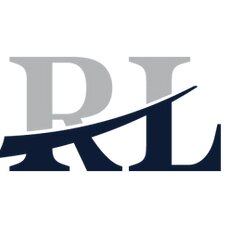Best General Litigation Lawyers in Grande Prairie
Share your needs with us, get contacted by law firms.
Free. Takes 2 min.
List of the best lawyers in Grande Prairie, Canada
Canada General Litigation Legal Articles
Browse our 1 legal article about General Litigation in Canada written by expert lawyers.
- How to Claim Personal Injury Damages in Ontario Canada
- Victims have two years from the date of the accident to initiate a lawsuit against the at-fault driver in Ontario. Ontario uses a hybrid system where you receive immediate "no-fault" benefits regardless of who caused the crash, while also retaining the right to sue for additional damages. To successfully sue... Read more →
About Litigation Law in Grande Prairie, Canada
Litigation in Grande Prairie, as in the rest of Canada, involves the process of taking legal action in disputes before a court of law. It's a methodical process where parties in a dispute present their cases to a judge, and sometimes a jury, who make determinations based on the presented evidence. Grande Prairie, situated in Alberta, follows both federal and provincial laws, contributing to its unique legal landscape. Legal professionals in this field might deal with civil, commercial, and occasionally criminal litigation, making it a broad area that encompasses various legal aspects.
Why You May Need a Lawyer
There are numerous situations where individuals or businesses might require the assistance of a litigation lawyer. Common scenarios include contract disputes, personal injury claims, employment issues, property disputes, collection of debts, and family law matters such as divorce and custody. Lawyers bring expertise in navigating the complex legal system and can represent your interests effectively in either negotiations or court proceedings. Having professional legal assistance can significantly impact the outcome of your case.
Local Laws Overview
In Grande Prairie, the legal landscape is influenced by both Alberta's provincial laws and federal laws of Canada. Key local aspects that might be relevant to litigation include the Alberta Rules of Court, which provide the procedural framework for legal proceedings in the province. Also, understanding the Provincial Court and Court of Queen's Bench jurisdictions is crucial, as they handle different types of cases. Knowledge of local bylaws can also be pertinent, especially in civil litigation matters involving land use or local business operations. It's beneficial to be aware of these elements when involved in a legal dispute in Grande Prairie.
Frequently Asked Questions
What types of legal issues are handled under litigation?
Litigation can involve a broad range of disputes including contract violations, personal injury claims, corporate disputes, and real estate issues.
How long does litigation usually take?
The duration of litigation can vary greatly depending on the complexity of the case, the court's schedule, and the willingness of parties to reach a settlement. It can take anywhere from a few months to several years.
Can litigation be avoided?
In many cases, litigation can be avoided through negotiation, mediation, or arbitration, which may result in a more amicable and quicker resolution.
What are the costs involved in litigation?
Costs can include court fees, lawyer's fees, and expenses related to gathering evidence. It's important to discuss potential costs with a lawyer at the outset.
What is the first step in the litigation process?
The first step typically involves consulting a lawyer to evaluate the merits of your case and file a Statement of Claim if you are initiating the lawsuit.
What should I bring to my first meeting with a litigation lawyer?
Bring any relevant documents such as contracts, correspondence, and any evidence you have related to your case to your first meeting with your lawyer.
Can I represent myself in court?
While it is legally allowed to represent yourself, it’s generally advisable to have a lawyer due to the complexity of legal procedures and the need for specialized legal knowledge.
What role does a litigation lawyer play during a trial?
A litigation lawyer will present evidence, examine and cross-examine witnesses, and make legal arguments on behalf of their client to persuade the court.
What happens if I lose the case?
If you lose the case, you might be responsible for the other party's legal costs and may need to comply with the court's judgment, which can include payment of damages or enforcing the terms of a contract.
Is there a time limit for filing a lawsuit?
Yes, limitation periods vary depending on the type of claim, but it’s important to act promptly to avoid missing the window to initiate a legal proceeding.
Additional Resources
To aid in your understanding and navigation through litigation, consider reaching out to the Alberta Law Society for general advice. The Grande Prairie Courthouse can also provide procedural guidance. Useful organizations include Pro Bono Alberta, which may offer free legal assistance, and the Alberta Justice and Solicitor General office, handling legal policy and judiciary matters.
Next Steps
If you're considering legal action or need defense in a litigation matter, it's crucial to consult with a qualified litigation lawyer who can assess your case and advise you on the best course of action. Schedule a consultation where you can discuss your situation in detail and devise a strategy tailored to your needs. Preparing all relevant documentation ahead of your consultation will facilitate a more productive meeting.
Lawzana helps you find the best lawyers and law firms in Grande Prairie through a curated and pre-screened list of qualified legal professionals. Our platform offers rankings and detailed profiles of attorneys and law firms, allowing you to compare based on practice areas, including General Litigation, experience, and client feedback.
Each profile includes a description of the firm's areas of practice, client reviews, team members and partners, year of establishment, spoken languages, office locations, contact information, social media presence, and any published articles or resources. Most firms on our platform speak English and are experienced in both local and international legal matters.
Get a quote from top-rated law firms in Grande Prairie, Canada — quickly, securely, and without unnecessary hassle.
Disclaimer:
The information provided on this page is for general informational purposes only and does not constitute legal advice. While we strive to ensure the accuracy and relevance of the content, legal information may change over time, and interpretations of the law can vary. You should always consult with a qualified legal professional for advice specific to your situation.
We disclaim all liability for actions taken or not taken based on the content of this page. If you believe any information is incorrect or outdated, please contact us, and we will review and update it where appropriate.











